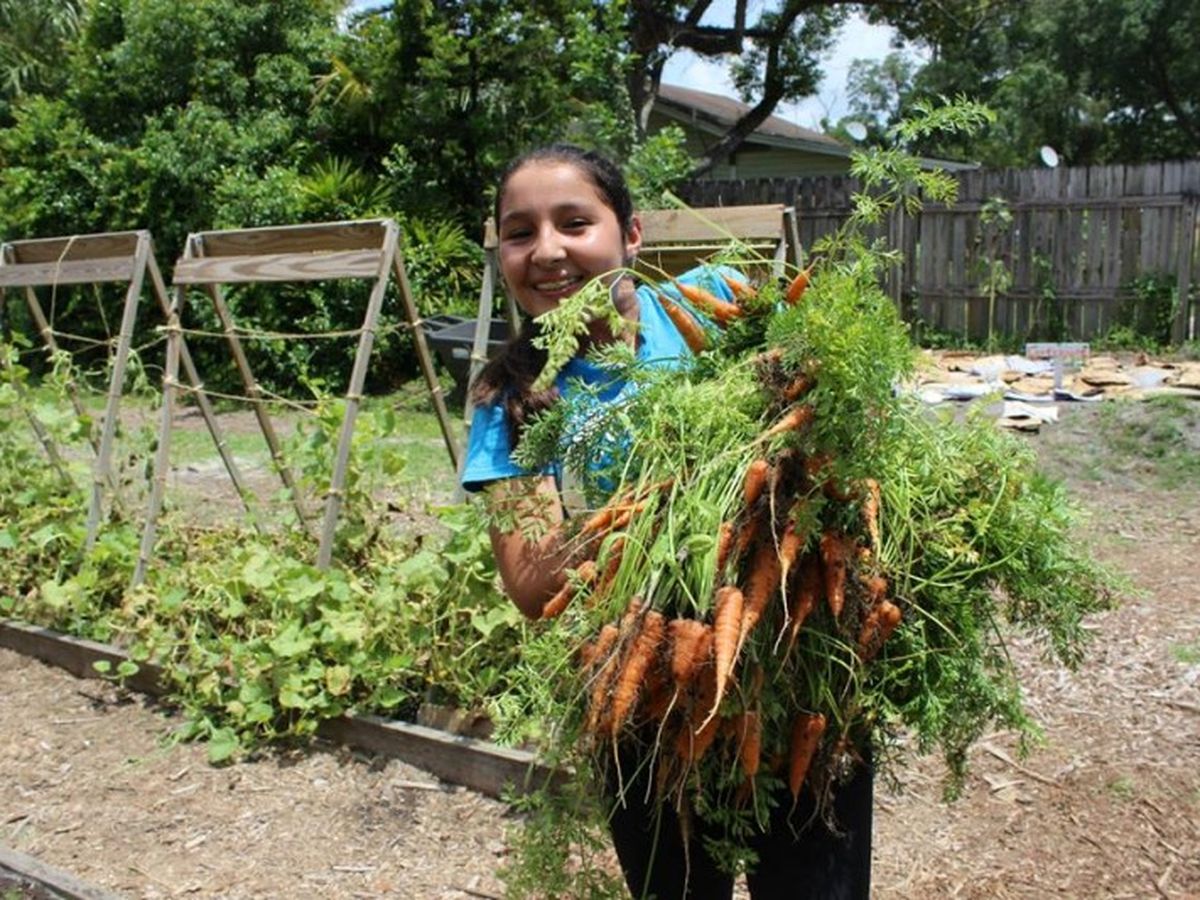An Urban Non-Profit Garden Robbed and Vandalized
Just last week the Tampa Bay Harvest’s Sustainable Living Project was vandalized and perpetrators stole with over 400 lbs of tilapia fish raised on site over the last 16 months to be harvested and donated to feeding programs. Whoever stole them could have just come in and we could have just given it to them if they were in need. But to destroy and disrupt the aquaponics system which will also help the produce grow was so unnecessary, now the produce dependent on that whole system is going to waste. We are looking to raise $5,000 to replace the fish, repair the aquaponics and other damages, but most of all increase security and surveillance systems to prevent this from happening again.
A can of beans can help make a meal. Knowing how to grow beans, that can be done in perpetuity.
That’s the idea behind Tampa Bay Harvest’s Sustainable Living Project that’s blossoming on an urban lot across the street from Lowry Park Zoo between Sulphur Springs and Seminole Heights in Tampa.

Tampa Bay Harvest is a not-for-profit organization that helps feed hungry Tampa Bay residents by distributing food to charities. Most of the food is collected by volunteers from supermarkets, restaurants and other food-related businesses. The Sustainable Living Project creates another food source by growing crops such as carrots, yard-long beans, strawberries, watermelons, pineapples and peanuts among others fruits and vegetables. The project also incorporates aquaponics to raise tilapia fish on the property.

All the food we grow here is donated and the project is not a community garden but a “community impact project” that has a purpose beyond putting food in pantries.
We are a learning resource center for the community. What we try to do here is teach and Spread the knowledge about growing food in a sustainable manner has resulted in organizations that previously received food from Tampa Bay Harvest’s garden now growing their own. The Salvation Army no longer needs our food because we built four raised beds and we taught them growing techniques and now they’re a small version of here.
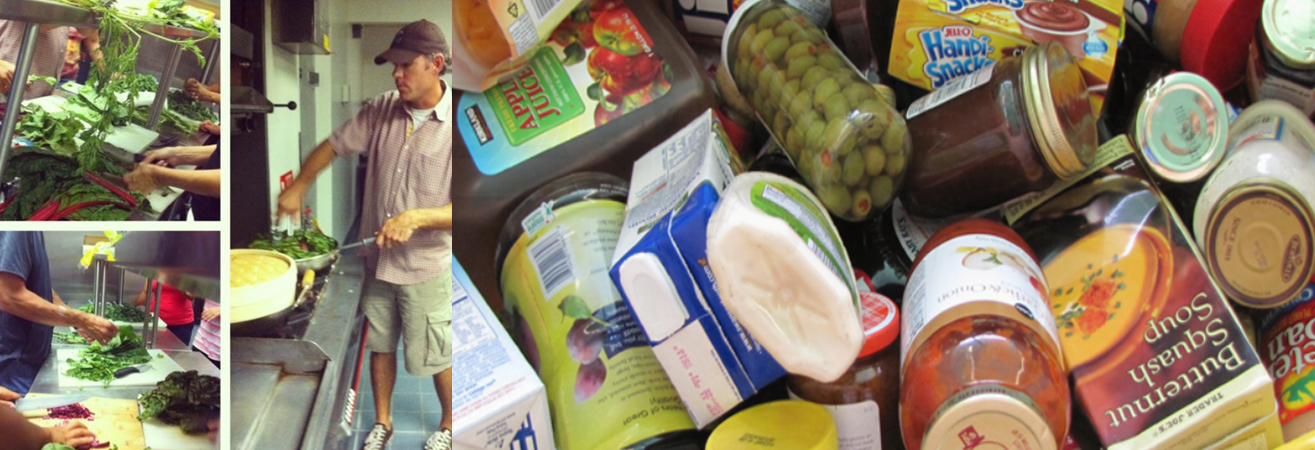
The principles of reuse, reduce and recycle are emphasized. Building materials such as wood and plastic are recovered from disposed-of items, a solar panel provides electricity and nature-based matter from leaves to waste from the fish and a flock of chickens is used to create soil and fertilizer. A hive of bees rescued from a real-estate project pollinates the crops, and irrigation comes from a water recovery system that includes rain barrels. A computer and an assortment of smart devices tie it all together into a cohesive working unit that volunteers maintains.
What we try to do is take the very best of the science and technology we have and marry it up with farming so they complement each other.
Volunteers of all ages provide the labor to maintain the garden, from pulling weeds to constructing plant beds. Young children are learning the value growing your own food as well as rain barrels, recycling and what kind of plants grow well together while they volunteer
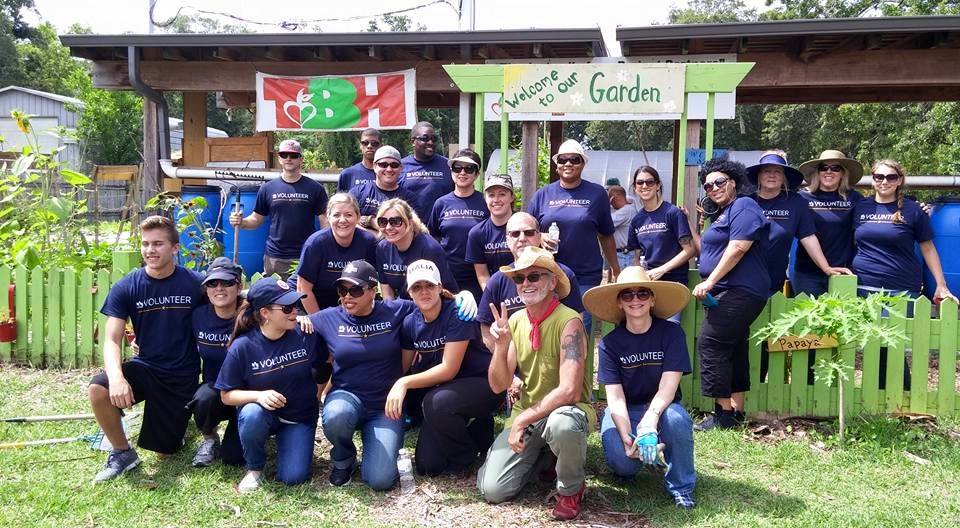
The sustainable gardening approach that Tampa Bay Harvest has established at the Sligh Avenue in Tampa, Florida is yielding new opportunities. You can find out more by visiting Tampa Bay Harvest’s website at tampabayharvest.org. or visit our Facebook page The Sustainable Living Project.
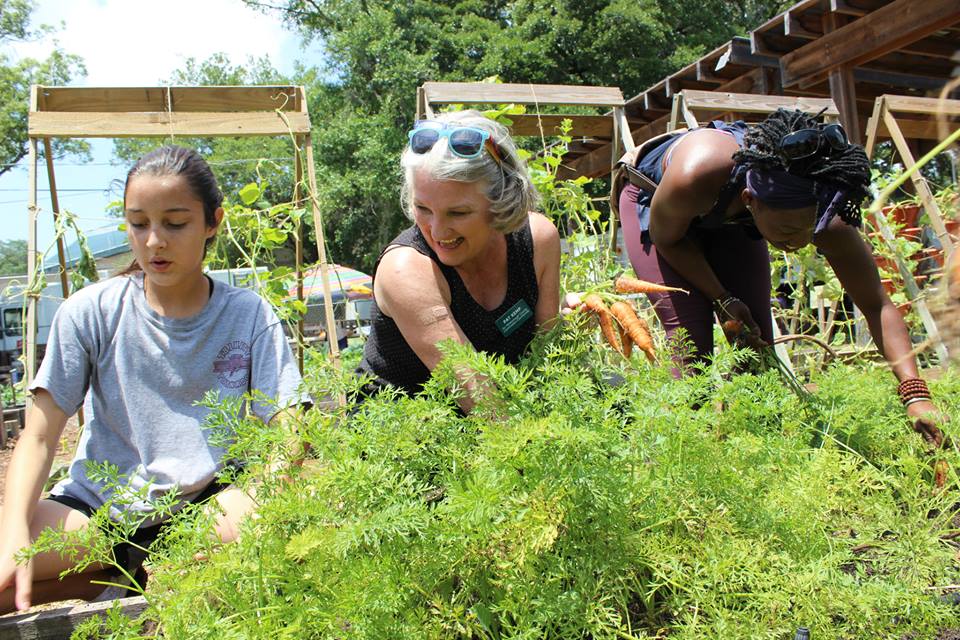
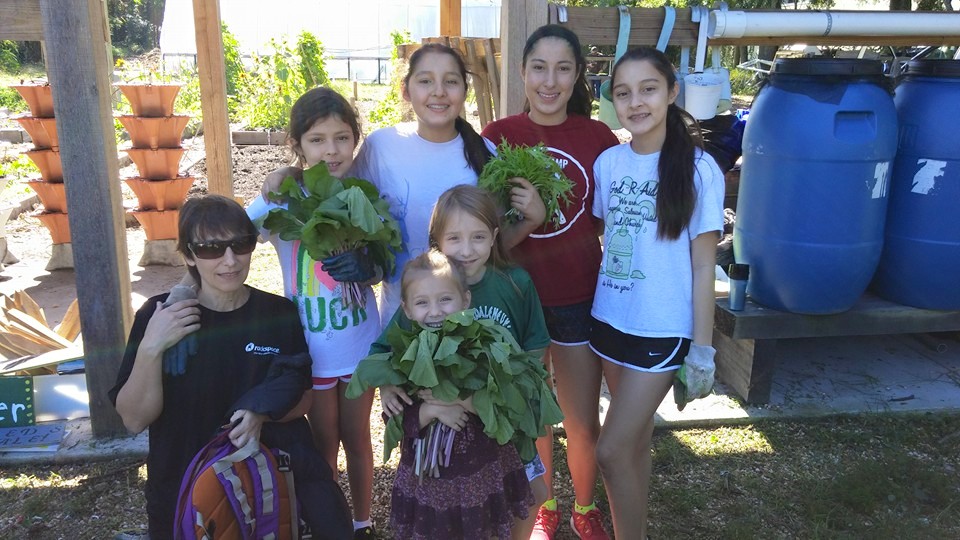
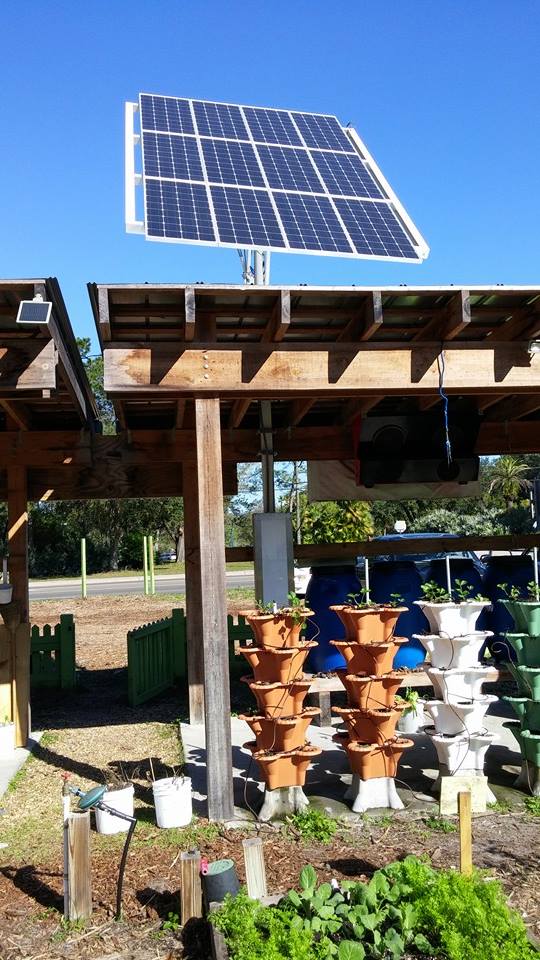
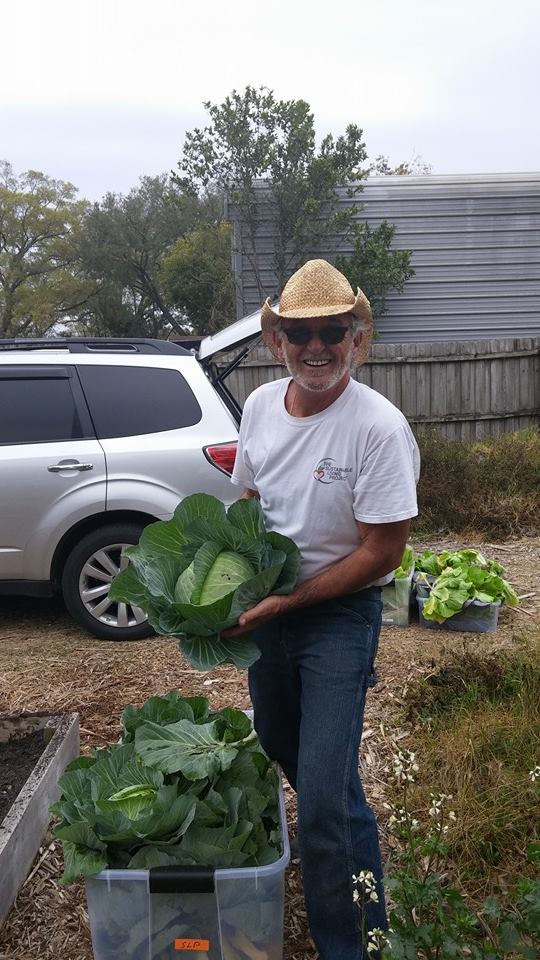
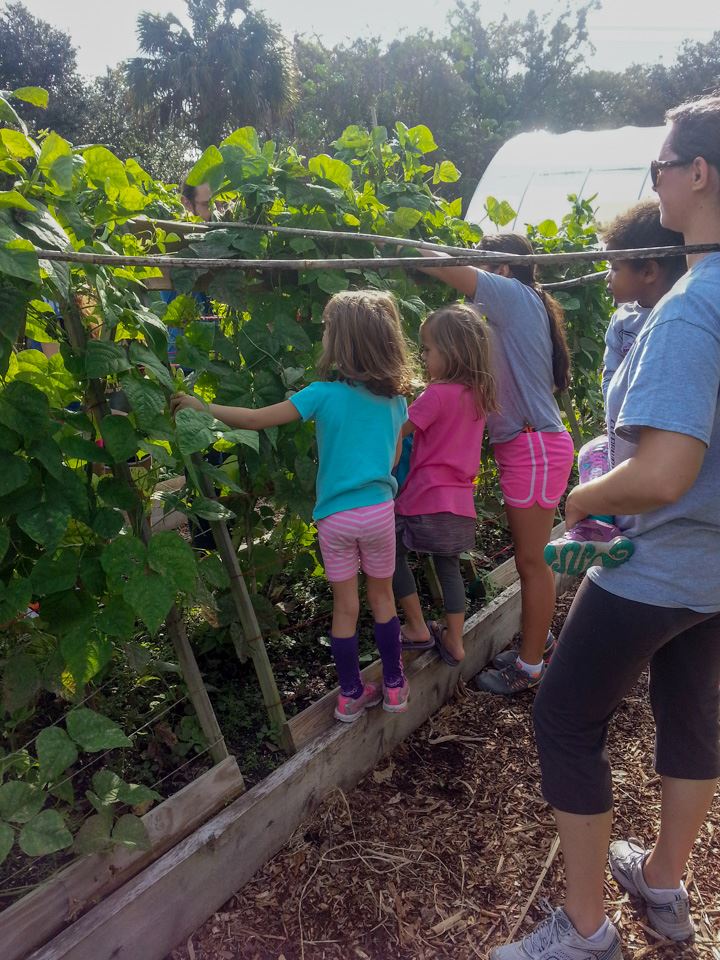
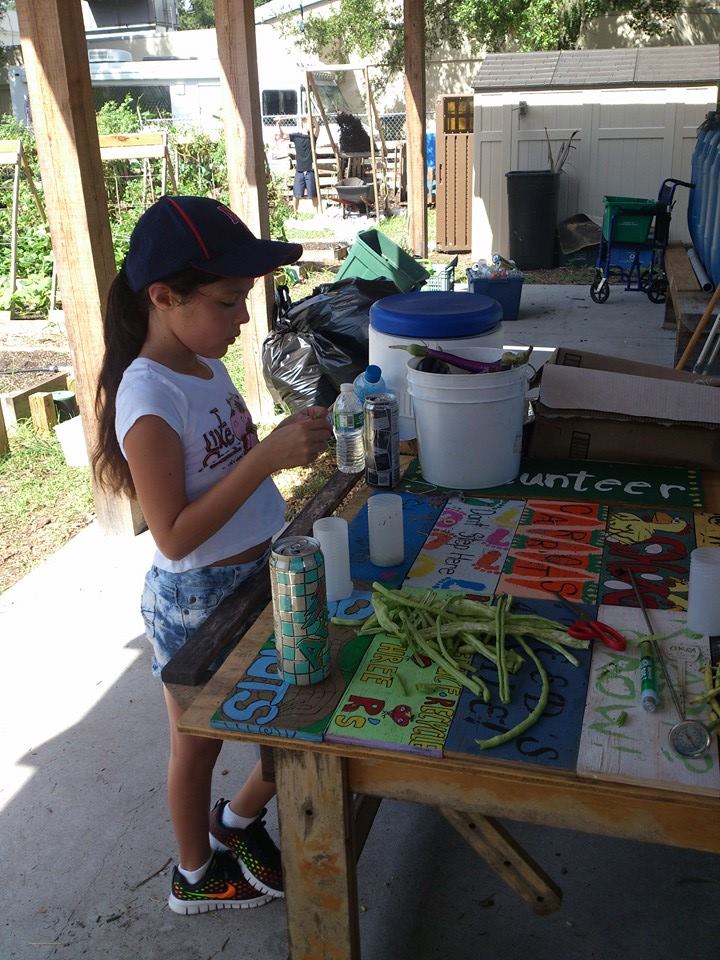
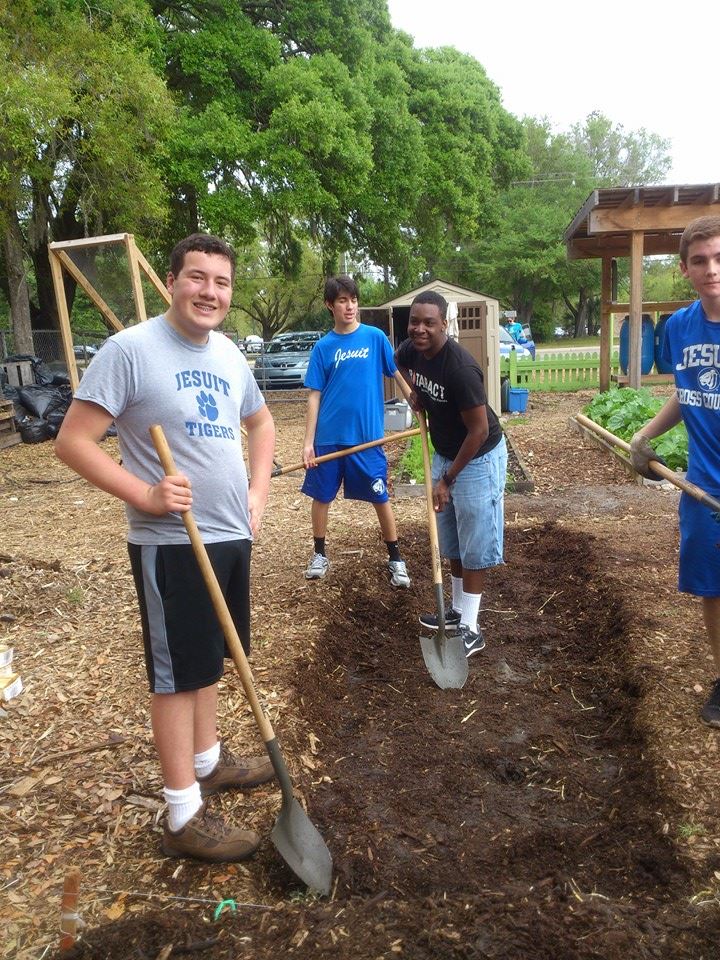
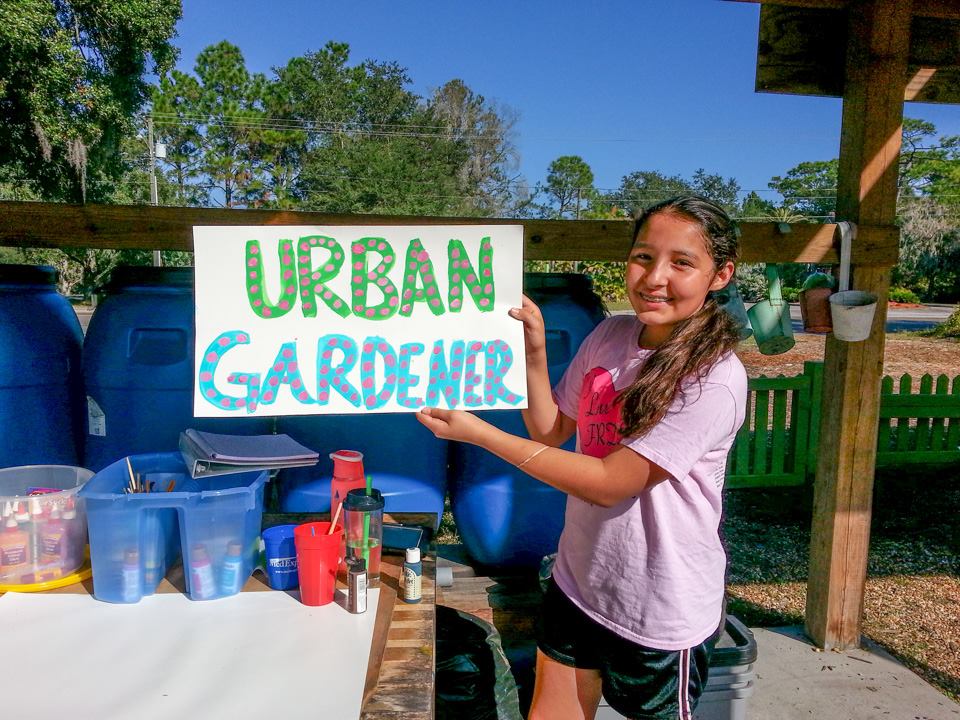
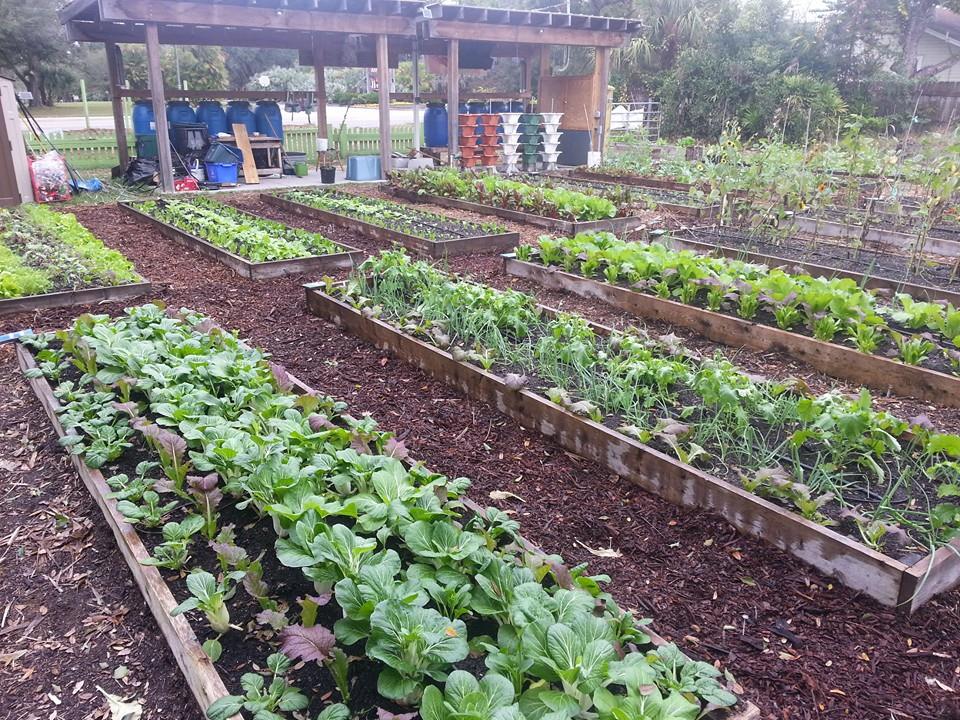
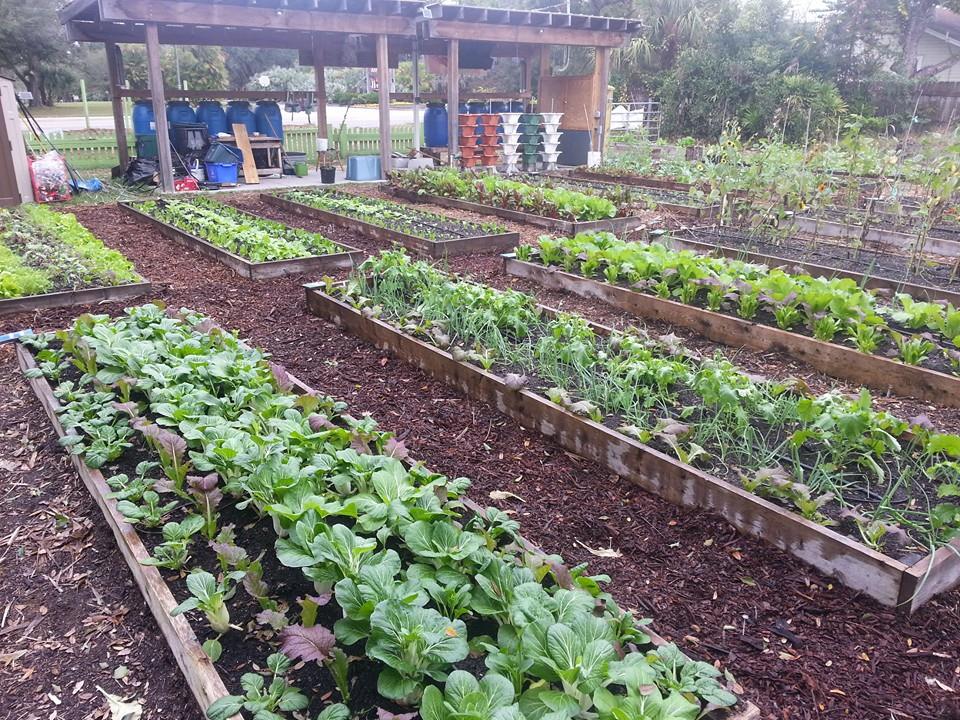
Just last week the Tampa Bay Harvest’s Sustainable Living Project was vandalized and perpetrators stole with over 400 lbs of tilapia fish raised on site over the last 16 months to be harvested and donated to feeding programs. Whoever stole them could have just come in and we could have just given it to them if they were in need. But to destroy and disrupt the aquaponics system which will also help the produce grow was so unnecessary, now the produce dependent on that whole system is going to waste. We are looking to raise $5,000 to replace the fish, repair the aquaponics and other damages, but most of all increase security and surveillance systems to prevent this from happening again.
A can of beans can help make a meal. Knowing how to grow beans, that can be done in perpetuity.
That’s the idea behind Tampa Bay Harvest’s Sustainable Living Project that’s blossoming on an urban lot across the street from Lowry Park Zoo between Sulphur Springs and Seminole Heights in Tampa.

Tampa Bay Harvest is a not-for-profit organization that helps feed hungry Tampa Bay residents by distributing food to charities. Most of the food is collected by volunteers from supermarkets, restaurants and other food-related businesses. The Sustainable Living Project creates another food source by growing crops such as carrots, yard-long beans, strawberries, watermelons, pineapples and peanuts among others fruits and vegetables. The project also incorporates aquaponics to raise tilapia fish on the property.

All the food we grow here is donated and the project is not a community garden but a “community impact project” that has a purpose beyond putting food in pantries.
We are a learning resource center for the community. What we try to do here is teach and Spread the knowledge about growing food in a sustainable manner has resulted in organizations that previously received food from Tampa Bay Harvest’s garden now growing their own. The Salvation Army no longer needs our food because we built four raised beds and we taught them growing techniques and now they’re a small version of here.

The principles of reuse, reduce and recycle are emphasized. Building materials such as wood and plastic are recovered from disposed-of items, a solar panel provides electricity and nature-based matter from leaves to waste from the fish and a flock of chickens is used to create soil and fertilizer. A hive of bees rescued from a real-estate project pollinates the crops, and irrigation comes from a water recovery system that includes rain barrels. A computer and an assortment of smart devices tie it all together into a cohesive working unit that volunteers maintains.
What we try to do is take the very best of the science and technology we have and marry it up with farming so they complement each other.
Volunteers of all ages provide the labor to maintain the garden, from pulling weeds to constructing plant beds. Young children are learning the value growing your own food as well as rain barrels, recycling and what kind of plants grow well together while they volunteer

The sustainable gardening approach that Tampa Bay Harvest has established at the Sligh Avenue in Tampa, Florida is yielding new opportunities. You can find out more by visiting Tampa Bay Harvest’s website at tampabayharvest.org. or visit our Facebook page The Sustainable Living Project.










Organizer
Anonymous
Beneficiary
